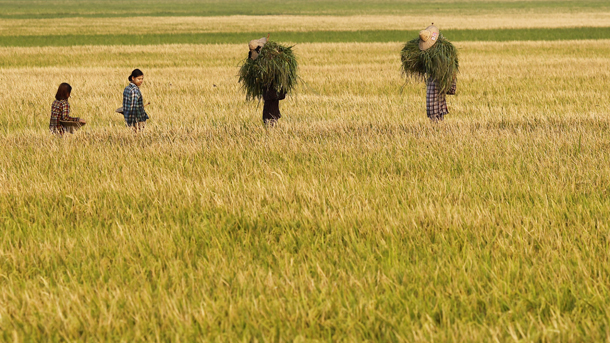As Burma strives to raise living standards, two key engines of economic growth—foreign investment and exports—remain hampered by a host of obstacles despite the recent suspension of Western sanctions on the long-isolated country.
Although interest in Burma’s energy sector and extractive industries such as mining is strong, efforts to boost income from other areas that depend heavily on access to foreign markets, such as agriculture and manufacturing, are still struggling due to internal and external factors.
According to the Ministry of Commerce, representatives from 29 countries visited Burma in the fiscal year that ended on March 31, but few brought deals that would do much to lift the country out of decades of poverty.
“We have met many foreign businessmen and diplomats, but not much has come of it,” said Commerce Minister Win Myint in Naypyidaw on May 25. “In my opinion, we need more discussions among ourselves before we meet with them. There are many things we need to prepare.”
While Burma’s own shortcomings—particularly its lack of infrastructure and investment laws—are a significant hurdle to growth, the protectionist practices of its trading partners are also an impediment.
“We have tried to increase our export volume, but that isn’t good enough,” said Win Myint. “We need to improve our quality and add value if we want to profit more from trade, but that isn’t easy when other countries impose restrictions on us.”
Citing the example of Burma’s trade difficulties with its neighbors, Win Myint said the country faces a variety of barriers to its exports.
“China doesn’t buy Myanmar rice in accordance with the rules of the World Trade Organization (WTO),” he said, noting that Burmese rice does poorly on international markets because of its low quality.
“We also export salt to Bangladesh, but they impose high taxes on our product,” said Win Myint, adding that the two countries are in talks to address the issue.
Other observers say that some of Burma’s trading partners actively discourage attempts to produce value-added products.
“We would like to export peanut oil to China, but China will only import the peanuts, which they buy for 4,200 kyat per viss [about US $3.10 per kilogram] and sell as oil for 44.8 yuan [$7] per kilo,” said Khin Soe, the owner of the Ayeyarwaddy Peanut Oil Trading Company.
Even the recent suspension of most sanctions by the West has not gone far enough to create a level playing field for Burma’s exports, say business leaders in the country.
“Getting back on the GSP list is not as important as becoming part of the Everything But Arms (EBA) scheme,” said Khine Khine Nwe, the joint secretary-general of the Union of Myanmar Federation of Chambers of Commerce and Industry.
The GSP, or Generalized System of Preferences, is a formal system of exemption from the more general rules of the WTO, aimed at opening markets to products from developing countries.
Burma was withdrawn from the GSP list in 1997 in response to findings by the International Labour Organization (ILO) of widespread forced labor in the country. The European Union, which suspended its sanctions on Burma in April, said it would support restoring the country’s GSP status once the ILO has reassessed the situation there.
The EBA, which is part of the EU’s GSP scheme, was introduced in 2001 to further open European markets to all products, with the exception of armaments, from the world’s Least Developed Countries (LDCs).
“Our neighbors, such as Bangladesh, Laos and Cambodia, are already included in the EBA program. Myanmar is also an LDC, so it should be given EBA status, too. If we only get GSP, how can we compete?” asked Khine Khine Nwe.

















